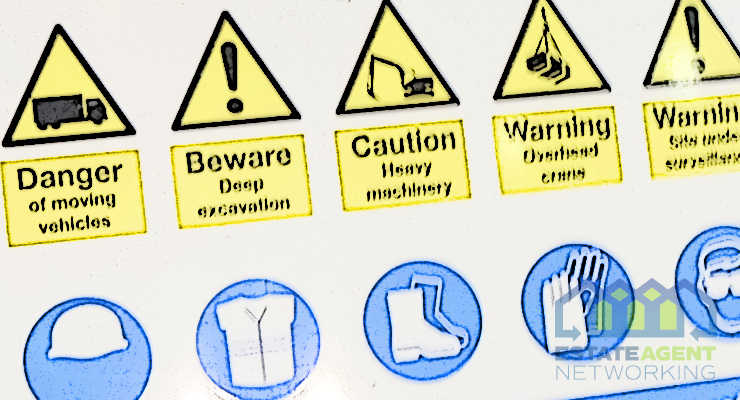Learn What’s Coming For Law Enforcement Software In 2024
Numerous complaints exist about law enforcement agencies’ inefficiency, especially in urban areas. These complaints are due to challenges like the role of technology in helping criminals, overpopulation, and poorly managed agencies. After years of reforms, most agencies are turning to law enforcement software to boost efficiency and service delivery.
These changes explain the increased adoption of tech among law enforcement agencies. Today, the police are actively using drones, body cams, speech devices, and other techs to fulfill their duties. Due to the impact of these software and systems, the agencies are constantly looking for upgrades to stay ahead of crime.
To stay ahead of crime in 2024, law enforcement agencies are implementing the following software changes and upgrades.
1. Law Enforcement Asset Management Systems
One of the problems enforcement agencies face is asset management. They must manage a large inventory of equipment, such as firearms, cars, safety gear, trackers, and cameras.
Managing all these resources requires a person to oversee the inventory. However, the employees can also get overwhelmed easily, especially when the paperwork is slower, and everyone is rushing to the store.
The law enforcement software offers a new solution for managing all department assets through various procedures. First, it uses the barcode and equipment number to track items like firearms. Improved equipment handling can help the department know which officer has a specific firearm or who is responsible for the missing gear. This streamlined management is ideal for cost savings and streamlining inventory management.
Therefore, all the officers will be responsible for equipment use and accountable for any mistakes or equipment mishandling.
The department can upgrade its maintenance schedules since the operations teams manage all the equipment using an asset-tracking database. The system ensures that all the trackers, cameras, and criminal identification assets are well maintained and upgraded in time to boost efficiency. It is also ideal for managing all the fleets by monitoring each and ensuring high performance and regular servicing.
The system also generates various reports, enabling the department to manage its equipment through strategies like disposals, upgrades, and replacements. Therefore, the maintenance and management team can improve operations efficiency.
2. Integrated Biometrics and Identification System
Normally, enforcement agencies depend on in-office systems to identify and monitor criminals. Such systems make it difficult to arrest certain criminals, especially when the police are uncertain about their criminal identity.
Also, the officer can arrest the wrong person, take them to the station, and release them after running the identification system. Instead of all these struggles, all the government systems are upgrading to integrate remote identification systems.
The police can use their body cams for facial recognition to track criminals based on pictures and facial attributes. Additionally, handheld police equipment can include biometric systems. Biometric systems enable the police to capture criminals, search through the database, and arrest them only when necessary.
Using the identification system, agencies can reduce the number of unlawful or suspecting arrests. The police can also handle cases quickly and book people without going to the station.
Such updates are ideal for booking minor offenses, such as misdemeanors, that do not warrant taking them to police custody. These strategies will relieve the burden on overcrowded police cells, hence improving the crime booking process.
3. Drones and Robotics Software Improvements
Drone technologies are still in the early stages in most police departments in various cities. The use is still limited due to drone capabilities, but the 2024 drone upgrades could accelerate street adoption and usage.
One of the updates includes a tracking system. Once the drone recognizes a criminal based on facial recognition, clothes, height, and other metrics, it can completely follow them, even in the crowd.
The updates make it easier for law enforcement agencies to track criminals without commotion. Officers will hardly lose criminals because the drone can track them to their hiding spot and all their movement behaviors.
These drones can increase the number of high-profile arrests and trace drug peddlers and other wanted criminals. With such upgrades, the police will no longer rely on air teams to track criminals, especially in crowded locations.
Upgrades in camera definitions and storage systems can make drones ideal for data collection and surveillance. Drones can land at a hidden location, position the camera, and then idly collect all the data without moving around.
Solar technologies make such uses possible. Agencies can outsource drones with bodies made of solar panels to charge while they fly and spy on criminals. The team can also fit the drones with thermal cameras and software for night surveillance and data spying.
4. AI Integrated Law Enforcement Systems
The police and other law enforcement agencies should rely on instincts and informers to uphold security. To make work easier, agencies can adopt AI as a part of the law enforcement system.
AI may not be perfect for tracking criminals, but it can help in crime prevention and evacuation missions in case of casualty incidents. It can predict threats’ impact, likelihood, and area of occurrence.
It can also help the police maintain security in certain areas since it provides analytics on crime hotspots and likely target areas. The agencies can reduce their dependence on criminal information and send more officers to spy on criminals.
Finally, based on the criminal database, it can scout the internet and create a correlation between criminals using evidence like pictures and GPS movements. The correlation data and relationships can help police arrest gangs and crime syndicates.
Bottomline
As crime numbers rise in 2024, law enforcement agencies will likely adopt more strategies and software updates to boost security. These updates will target equipment, management, and various systems critical to national security. These are some of the updates that are currently in the plan.









